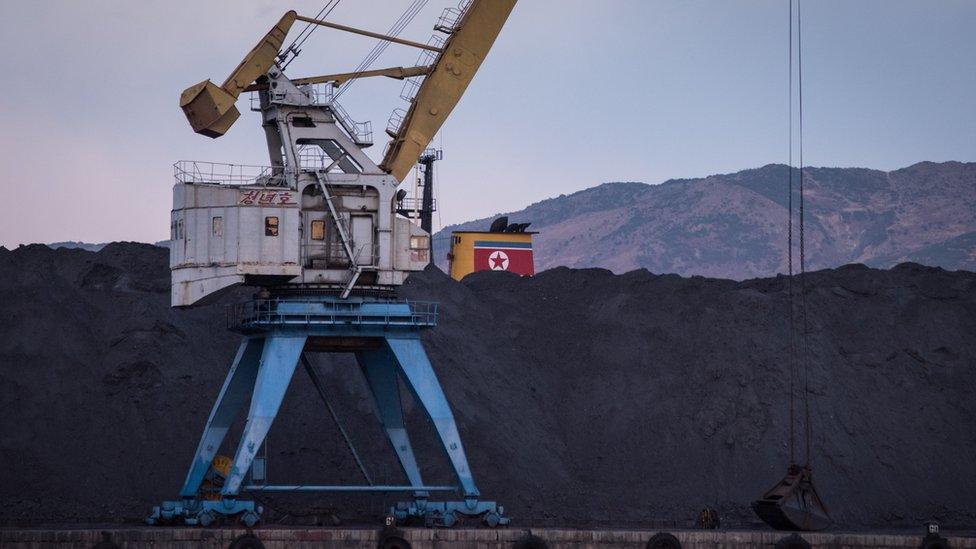Trump and N Korea: Are sanctions reason for planned talks?
- Published

As you'd expect, Asian markets have reacted pretty positively to North Korean leader Kim Jong-un's unprecedented offer to US President Donald Trump to sit down for talks.
That's hardly a surprise. After all, the prospect of that dialogue - and reports that Mr Kim has agreed to halt nuclear and missile tests and was "committed to denuclearisation" - can only be good for stability globally.
And it would be especially welcome in East Asia, where escalating conflict would inevitably hit economies because of integrated supply chains in the region.
But what's more interesting, is what the potential upcoming meeting between "Rocket Man" and the "Dotard" says about just how badly the North Korean economy may be doing.
The unlikely triangle: Trump, Rodman and Kim Jong-un
Unnerving
As I wrote earlier this year, data shows that North Korea's economy has been taking a hit from sanctions.
North Korean exports may have declined by 30% last year, and in particular exports to China, North Korea's biggest trading partner, are down as much as 35%.
That's a third of the regime's economy wiped out.
The regime's elite, who Kim Jong-un needs to keep on side for his legitimacy, won't like that.
But more unnerving for Pyongyang could well be how much worse things may become.
Was your T-shirt made in North Korea?
"Many of the tougher measures will take more time, widespread and rigorous implementation to be fully effective," William Newcomb, a former member of the UN Panel of Experts told me. "Early indications of what is in store in the future are likely becoming more apparent to Pyongyang."
And so that new sanctions-induced reality check could be why North Korea is now willing to talk about denuclearisation - a stance that seemed impossible just weeks ago.
"The sanctions have been extraordinary," says Christopher Hill, a former US assistant secretary of state during the George W Bush years.
"The Chinese have really participated in these sanctions as never before...that certainly begins to hurt."
Kim Jong-un had conceded in his New Year's address that sanctions were beginning to bite. But just because North Korea's economy may be hurting, doesn't mean Mr Kim's invitation to Donald Trump should be seen as an act of weakness.
"There will be a cost to the US for any negotiation with North Korea over denuclearisation," Ankit Panda of the Diplomat told me.
"This is a meeting - in Kim Jong-un's mind at least - that will take place between two equals, and more importantly, two nuclear powers."
- Published9 March 2018
- Published9 March 2018